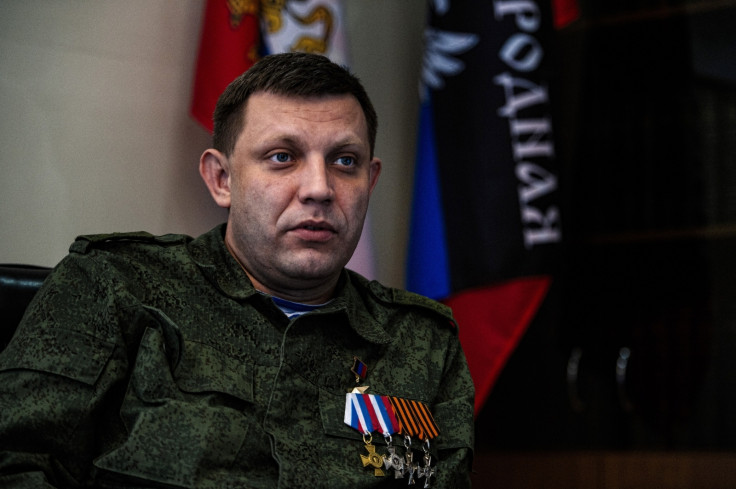Ukraine separatists declare new state named Malorossiya in Donetsk and Luhansk
More than 10,000 people have died in fighting after Russia-backed rebels took control of parts of Ukraine.

Separatists in eastern Ukraine on Tuesday proclaimed a new state that aspires to include not only the areas they control but also the rest of Ukraine.
The surprise announcement in the rebel stronghold of Donetsk casts further doubt on the 2015 cease-fire deal that was supposed to stop fighting in Ukraine's industrial heartland and bring those areas back into Kiev's fold while granting them wide autonomy.
More than 10,000 people have died in fighting after Russia-backed rebels took control of parts of Ukraine's east in April 2014 after Russia annexed Ukraine's Crimean peninsula. The rebels originally sought to join Russia but the Kremlin stopped short of annexing the area or publicizing its military support for the rebels.
The separatist Donetsk News Agency on Tuesday quoted local leader Alexander Zakharchenko as saying that the rebels in Donetsk, Luhansk as well as representatives of other Ukrainian regions would form a state called Malorossiya.
Zakharchenko said they are drawing up a constitution that would be put up to a popular vote later.
"We believe that the Ukrainian state as it was cannot be restored," Zakharchenko said in remarks carried by the Tass news agency. "We, representatives of the regions of the former Ukraine, excluding Crimea, proclaim the creation of a new state which is a successor to Ukraine."
Although separatists in the east do have sympathizers in other Ukrainian regions, they have not attempted to capture territories there, nor do they have any political representation there.
France, Germany, Ukraine and Russia worked out an agreement in the Belarusian capital Minsk in 2015 which laid out a roadmap for ending the conflict between government troops and separatists. Under the deal, the rebels and the Ukrainian government agreed that the rebels would return the control of the territories they had captured to Kiev while Kiev would allow a local election there and grant wide autonomy to the region. While the deal helped to reduce the intensity of fighting, none of the political components have been implemented.
There was no immediate comment from Russia, which has been supporting the rebels.
© Copyright IBTimes 2025. All rights reserved.





















